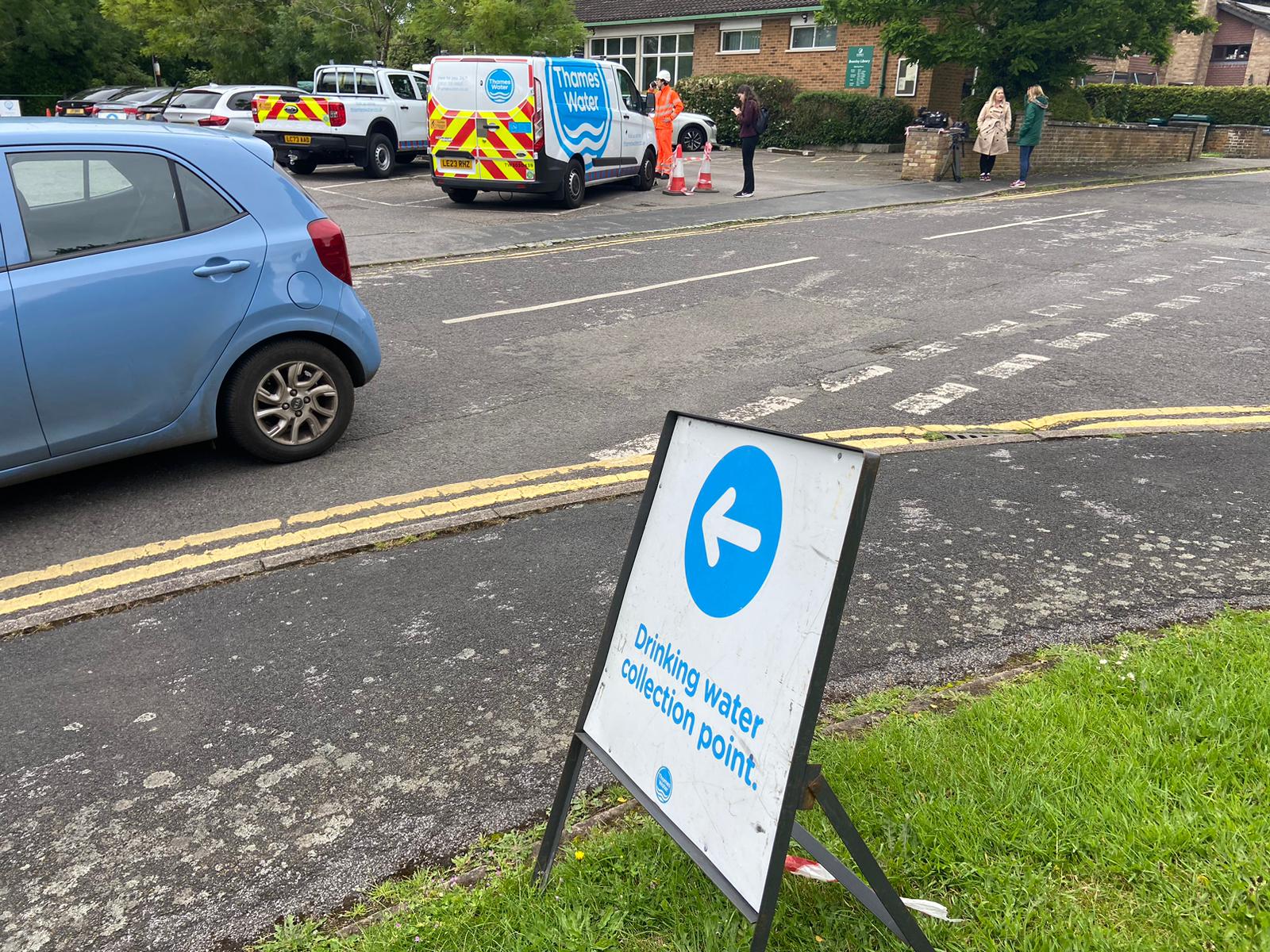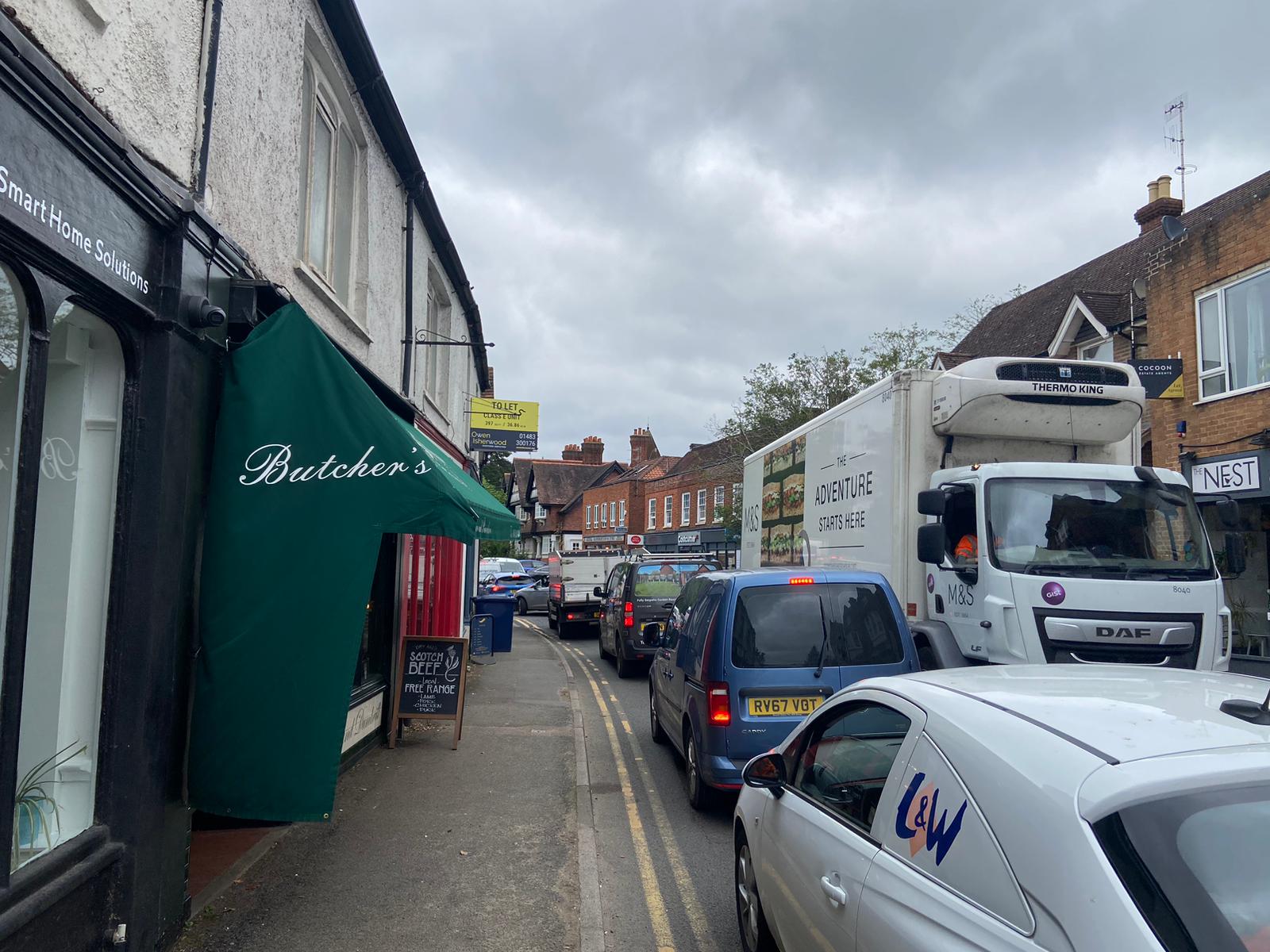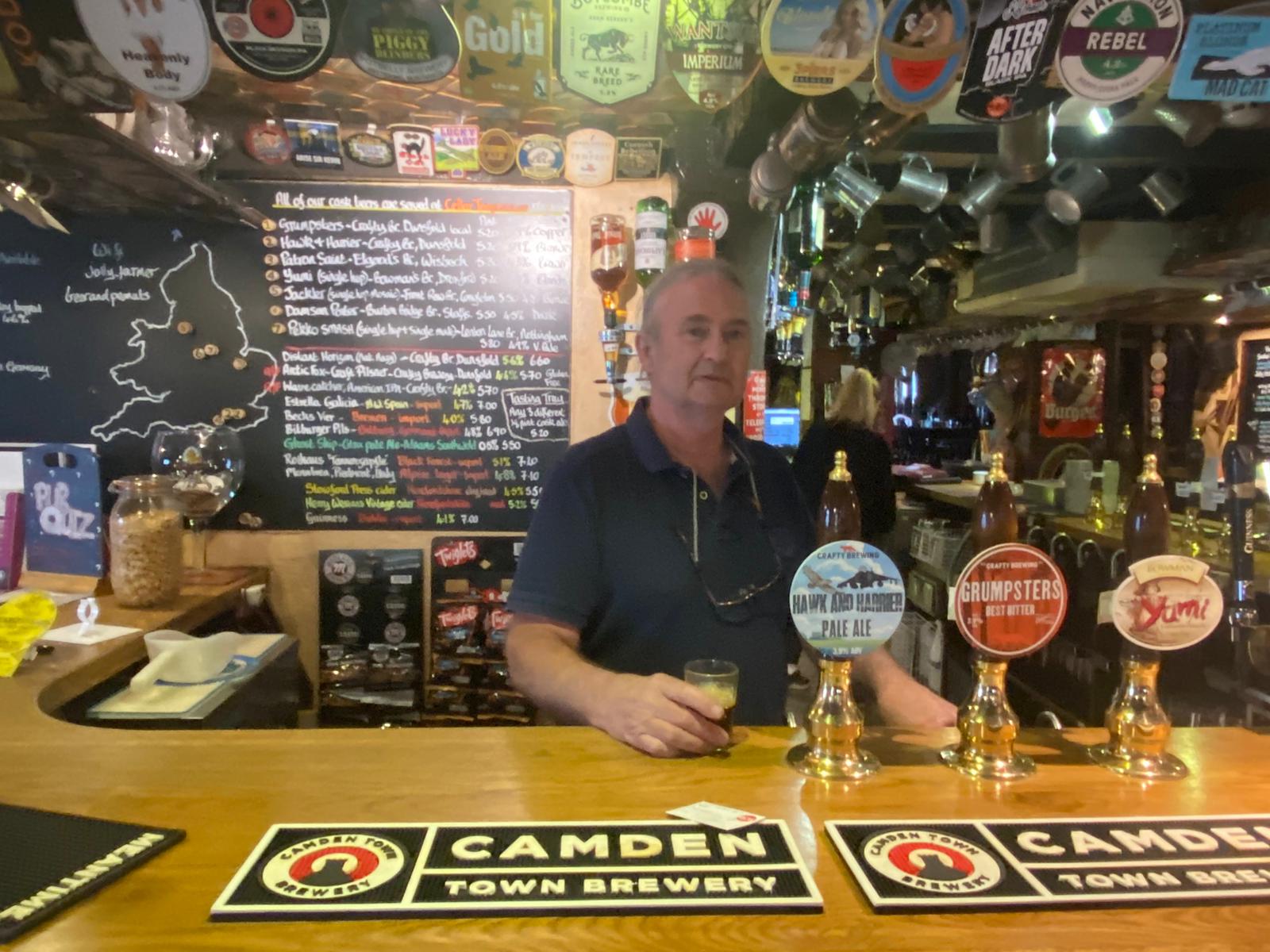‘We’ve had enough’: The quaint Surrey village ‘blighted’ by petrol leak contaminating drinking water
A leak at a village petrol station, believed to date back to 2016, is now causing havoc for residents and threatening local businesses, reports Andy Gregory


Nestled in the heart of Surrey, in one of Britain’s most affluent boroughs, some residents of Bramley describe it as a “destination village”, centred around a thriving high street comprised largely of independent local businesses.
But those living there warn the otherwise quaint village is being blighted by a leak from the petrol station in the village centre, which on Friday saw Thames Water issue a warning to some 616 properties urging them not to drink the water in their taps.
The leak, stemming from a garage taken over last year by Asda, was first discovered in 2021, when locals began to notice fuel bubbling in the stream running through Bramley’s centre, and landlords at the Jolly Farmer discovered the reek of petrol emanating from the village pub’s cellar.
So while Friday’s notice was alarming to residents, many had already been concerned by news that a handful of homes last year had been issued with a similar warning, while the prestigious girl’s boarding school St Catherine’s was also hit with the same alert a fortnight ago.
And in another stark symptom of the leak, fumes emanating underground mean manhole covers throughout the village have been daubed with the alarming message of “danger, do not open” – with the fire brigade frequently called out whenever the drainage system and other service conduits require maintenance.

Meanwhile, BT Openreach, whose junction boxes are stationed all through the village, have been left struggling to carry out maintenance of its fibre broadband or phone networking, because of the fire risk posed by running electrical current through copper wire, local officals said – leaving concerns about possible degradation of the local network servicing thousands of people.
“It’s just been snowballing out of control really,” Bramley and Wonersh councillor Jane Austin told The Independent, describing Friday’s drinking water alert as “just the latest in a series of grim and miserable things that have happened to our village”.
According to Thames Water, which has been carrying out regular tests for months, reviewed by the UK Health Security Agency, Friday’s “do not drink” alert came after test results received on Thursday indicated “a possible deterioration in quality in some areas” and “elevated levels of hydrocarbons”.
Drinking water contaminated with hydrocarbons can cause nausea, vomiting and abdominal pain, however low levels of exposure are not expected to cause long term health effects, Thames Water said, stressing that its alert was precautionary and that “the village water supply has been safe to drink up to this point”.
It is expected that residents will be forced to continue using bottled water for around three to four weeks whle testing continues.

Among the steady drip of residents making their way to pick up water from the emergency bottle bank set up outside Bramley Library was David Bayley, a retiree in his 70s, who said he didn’t yet know the “actual facts” about the incident but so far was grateful to Thames Water for providing alternative drinking water.
“Yes it’s inconvenient – I’ve got to walk to all the way to my car with this heavy load – but there are worse things in life. Getting poisoned by your water supplies is one of those worse things, and at least they’ve stopped that,” he said.
But for many, the more pressing issue is the ongoing construction work to replace a water pipe outside the petrol station, which have brought the steady flow of traffic along the high street – which forms part of the major A821 arterial route linking Guildford and Horsham – to a near halt.
Residents warn they are merely the latest in a series of road works linked to the petrol station, which serve to turn the heart of the peaceful village – and each of the entrances and exits to the north and south – into a neverending traffic jam.

While one resident walking home with his bottled water was among several to lament that it now takes “about an hour” to drive through the typically commuter-friendly village, much of the strongest concern is centred around the impact on Bramley’s much-treasured local businesses.
“The road closures have been going on for months and it’s massively affecting the businesses,” said 37-year-old dance teacher Holly Bridger, speaking on the high street over the sound of idling engines, adding: “Everyone’s just avoiding Bramley because of it.”
One business feeling the strain is the No Naked Walls Gallery, whose owner, Sharon Withers, describes Bramley as a “little destination that people love to come and visit”, with a thriving high street. But with her gallery of 11 years sitting opposite the library, the car park typically serving her customers now acts as a bottle bank, and was on Friday full of residents’ cars, Thames Water vans and teams of broadcast journalists.
“I’m sitting here today having to find other ideas of having a pop-up somewhere else that people can get to, or other opportunities elsewhere, because understandably I can imagine people don’t particularly want to come to Bramley at the moment,” Ms Withers told The Independent.
“The traffic is gridlock and nobody’s going to want to drive to the village. Suppliers have just cancelled delivering or turning up because they don’t want to be in the traffic. And if they don’t want to be, I can’t imagine customers want to be – and now there’s no parking either.”
Warning that the leak has “not been taken seriously for a long time and the level of disruption that’s now generated is extreme”, Ms Withers added: “I just hope they get it sorted out soon. The concern is they’re going to dig it all up again for BT, gas, electric – is it weeks of this, and then it’s going to be dug up again and again?”

At the far end of the village, the barman at the Jolly Farmer could be heard telling the pub’s lone customer at around 4pm: “It’s killing us – this is not a normal Friday.”
Being the first people in Bramley to discover the the leak after smelling the stench of gas in his cellar – only to be told by the fire brigade that it was mould – of the pub’s two landlord brothers, Chris Hardstone, has for months been forced to close the pub’s B&B accommodation due to the smell.
Describing the battle to “try to get people to believe there was a problem”, Mr Hardstone lamented not just the gridlock plaguing his and other businesses, but added: “Now you’ve got all the after-effects ... Brampton’s all on clay and sand, so it’s permeated everywhere in the substrata and it can take a hell of a long time for that to work it’s way out.”

Despite the initial struggle for the issue to be taken seriously, new insights into the cause leak have now been discovered – and were relayed to residents at a packed village hall meeting called by local MP Jeremy Hunt on the evening of Rishi Sunak’s general election announcement.
During work at the petrol station earlier this year, a years-old rupture in the main inlet pipe used to deliver petrol in the tanks was discovered – believed to have been caused by construction equipment in 2016.
While the pipe had been patched up using a temporary fibreglass repair, this is believed to have disintegrated in the intervening years to 2021, when Bramley residents first noticed the petrol smell, now at times emanating from the stream through the village.
Noting that residents now have “very real and understandable concerns about how long has this happened for, is it harmful, what’s going on”, Cllr Austin added: “It’s shocking to me that people were not more all over this at the beginning. I really did have to push hard for people to take me and fellow residents seriously.”
Warning that – in addition to “months and months of serious cleanup and remediation” in relation to the leak itself and its “devasting” impact on businesses – BT Opereach’s struggles to maintain its fibre broadband system as a result “will be the next issue after this”, Ms Austin said: “We are a really strong community, we will get through this.
“But I think a lot of people are anxious right now and we’re getting to the point where we’ve really had enough of this now.”
Join our commenting forum
Join thought-provoking conversations, follow other Independent readers and see their replies
Comments
Bookmark popover
Removed from bookmarks